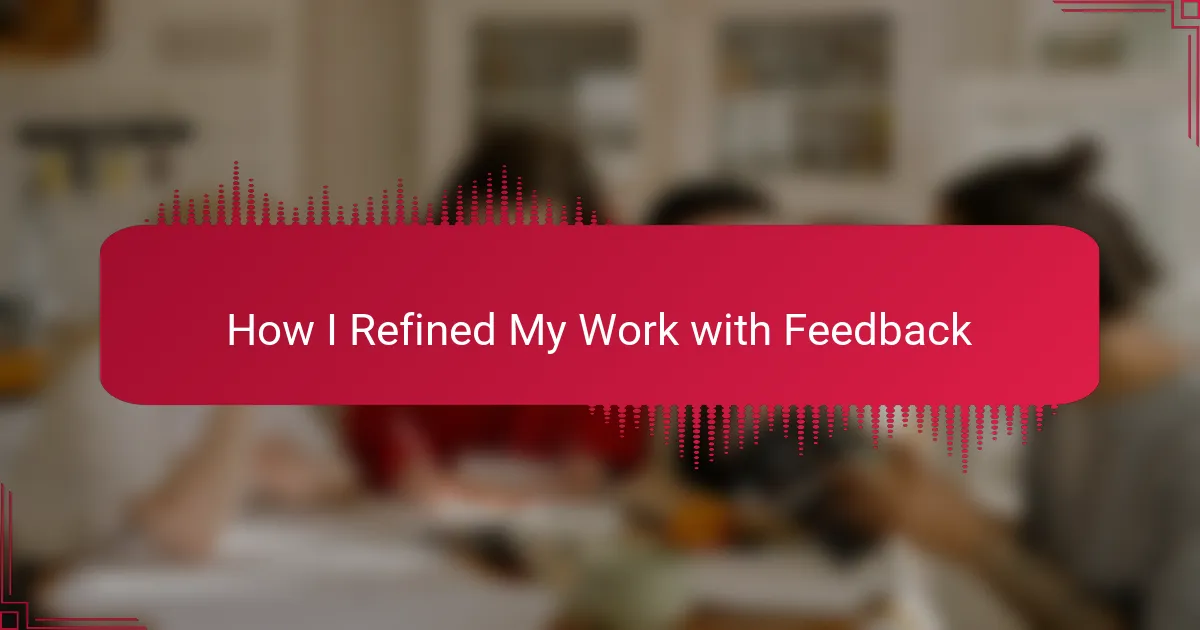Key takeaways
- Feedback enhances the writing process, providing insights that strengthen narratives and character development.
- Constructive criticism fosters a supportive community among writers and encourages collaboration.
- Techniques such as active listening and maintaining a feedback journal help effectively process and implement feedback.
- Receiving feedback helps authors identify blind spots, leading to significant improvements in their work.
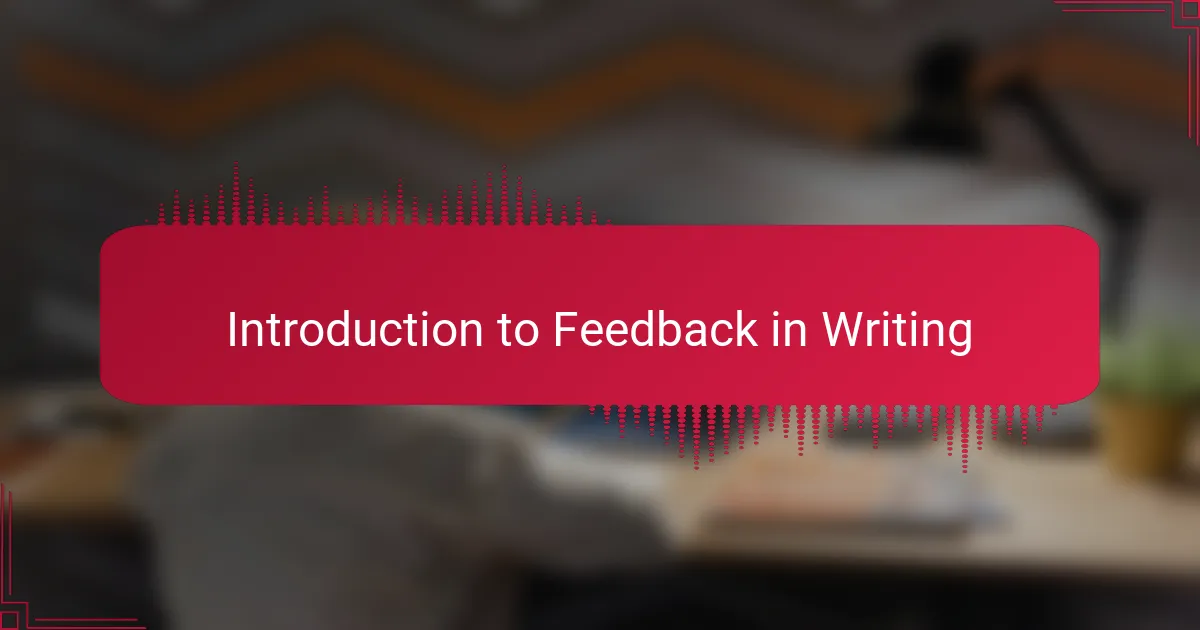
Introduction to Feedback in Writing
Feedback is an essential part of the writing process, especially for comic book authors. When I first started writing, I thought that my ideas were perfect the way they were. It took me a while to realize that feedback could turn a good story into a great one.
I remember sharing my early drafts with fellow writers and getting responses that challenged my perspective. There was a moment when a critique made me question my characters’ development. It felt uncomfortable at first, but that discomfort pushed me to refine my work and ultimately strengthen my narrative.
Have you ever received feedback that completely shifted your understanding of your own work? I have, and I can say that those moments are invaluable. They teach us to see our writing through our readers’ eyes, allowing us to tailor our stories to resonate more deeply.
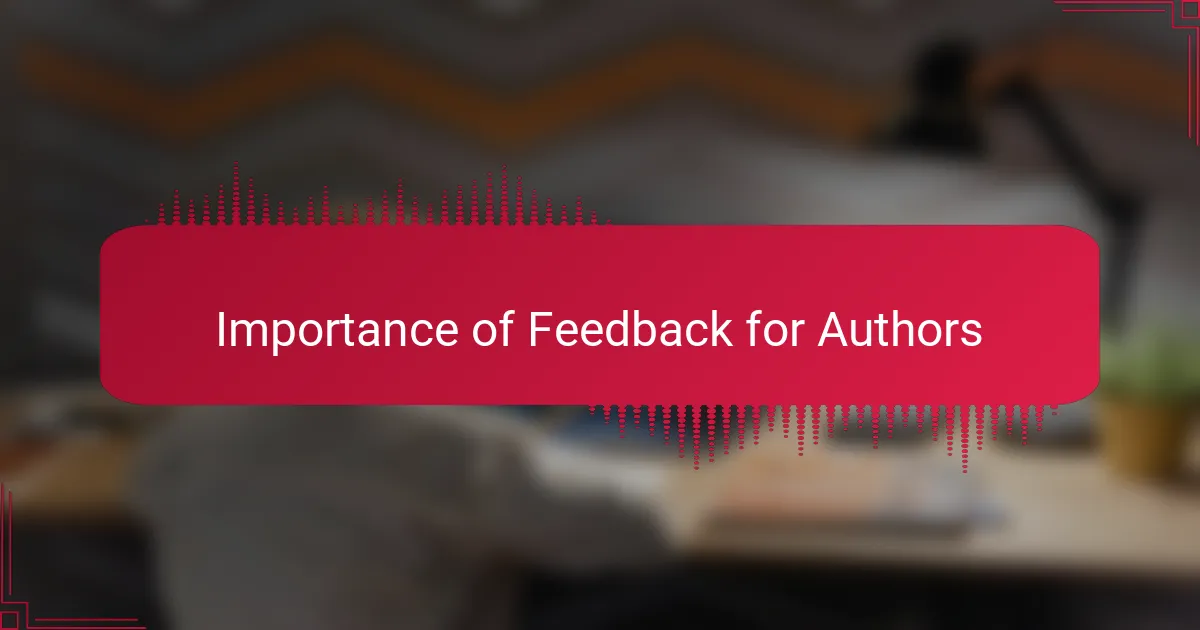
Importance of Feedback for Authors
The importance of feedback for authors cannot be overstated. It serves as a mirror, reflecting the strengths and weaknesses of our work that we often overlook. I remember when I first began writing comics; I was so close to my characters and story arcs that I couldn’t see where the pacing was off or if a plot twist fell flat. Receiving constructive criticism opened my eyes to new perspectives, enhancing my narrative skills and helping me grow as a creator.
Moreover, feedback fosters a sense of community among writers. Sharing work with peers can be intimidating, but it’s always rewarding when those critiques come from a place of support and encouragement. When I shared my first draft with a group, their insights not only improved my comic but also bolstered my confidence. It was a game-changer for my development as an author.
Here’s a comparison table illustrating the differences between feedback and criticism:
| Feedback | Criticism |
|---|---|
| Constructive and supportive | Often perceived as negative |
| Focuses on improvement | Highlights flaws |
| Encourages dialogue | May shut down conversation |
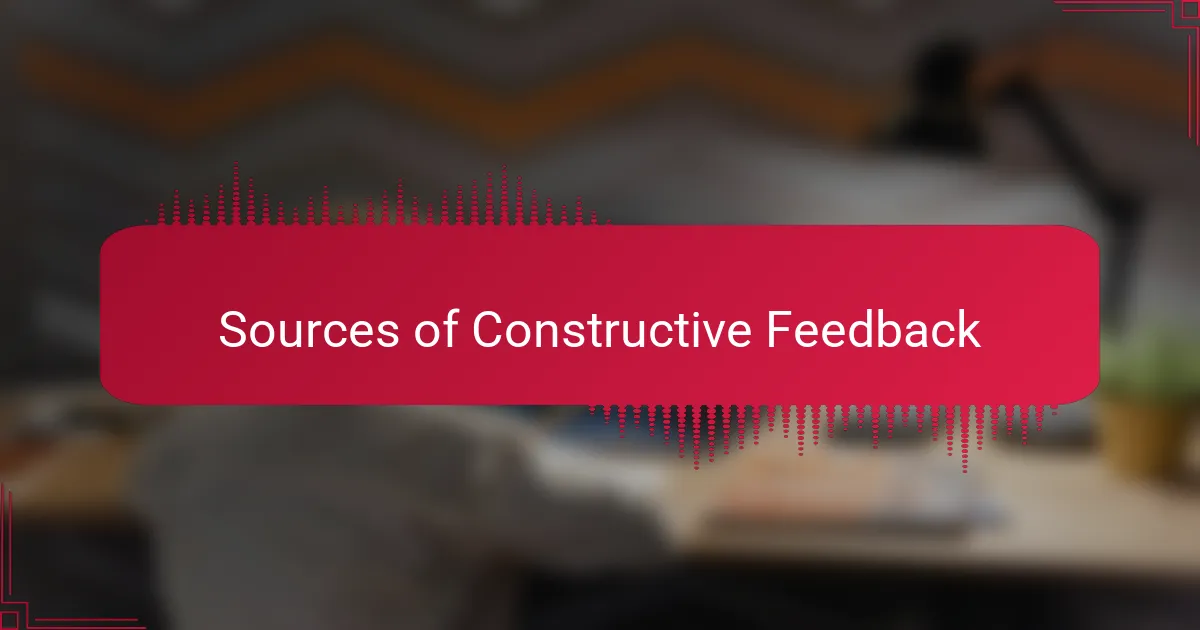
Sources of Constructive Feedback
When it comes to finding sources of constructive feedback, I often turn to writer groups and workshops. Those settings create a unique space where we can share openly, knowing that everyone is there to help each other succeed. I recall a workshop I attended where the instructor facilitated discussions that led to deep insights about my character arcs. That experience taught me the value of collaboration in refining my work.
Another invaluable source for feedback has been beta readers. These are individuals who read my drafts before publication, providing fresh perspectives. I remember the first time I sent my comic to a group of friends who weren’t familiar with the genre. Their responses, filled with honest impressions and enthusiastic suggestions, pushed me to explore new angles and improve my storytelling. It was eye-opening to see my creations through non-writer eyes.
Don’t overlook online forums and social media groups focused on comic book writing. I’ve found that some of the most constructive feedback I’ve received has come from engaging with fellow authors on platforms like Reddit or specific comic-focused Facebook groups. The diversity of opinions and experiences in these communities can be astounding. Do you think that anonymity might help people express their thoughts more candidly? From my experience, it often leads to more genuine discussions about the strengths and weaknesses of a story.
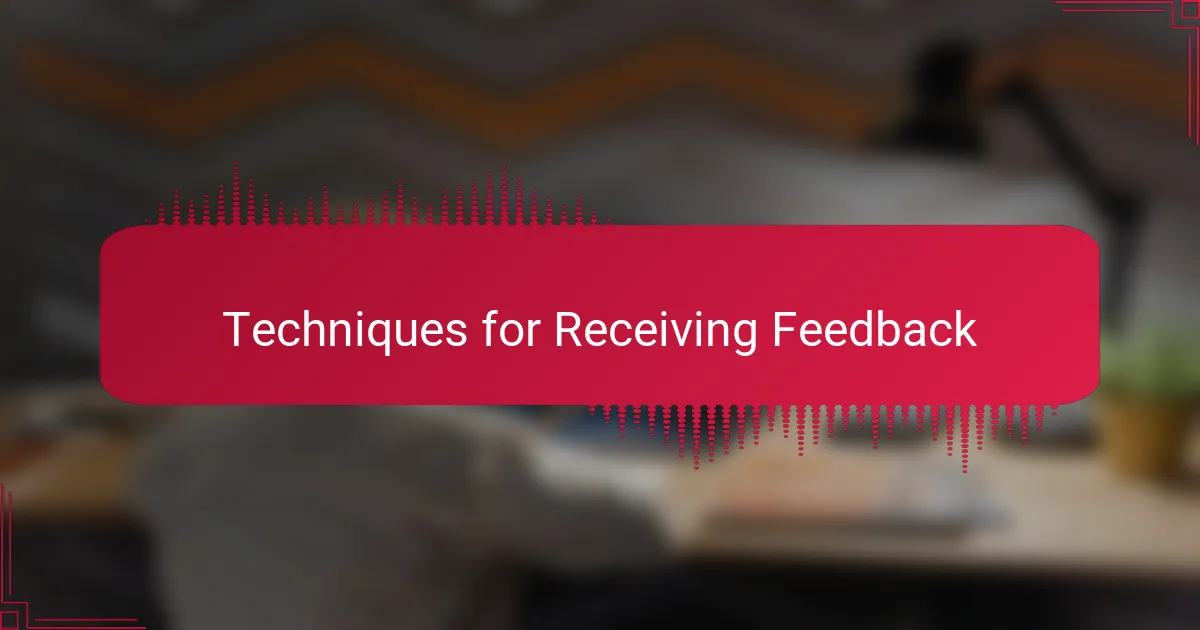
Techniques for Receiving Feedback
When I first started receiving feedback on my comic book scripts, I found it overwhelming. I needed techniques to handle the comments effectively, so I began focusing on active listening. This meant not just hearing the words but really understanding the underlying concerns and suggestions. It helped me to separate my ego from the work, allowing for a more productive dialogue.
Another technique I adopted was maintaining a feedback journal. I jot down all the comments I receive, no matter how small. This practice not only helps me track progress but also allows me to reflect on patterns over time. I’ve noticed that regularly revisiting this journal helps me feel less defensive and more open to change.
Here’s a comparison table of techniques for receiving feedback:
| Technique | Description |
|---|---|
| Active Listening | Engage with feedback without defensiveness, aiming to understand the giver’s perspective fully. |
| Feedback Journal | Document all received feedback for reflection and pattern recognition, fostering a constructive mindset. |
| Seek Clarification | Don’t hesitate to ask for more details or examples to better understand the feedback provided. |
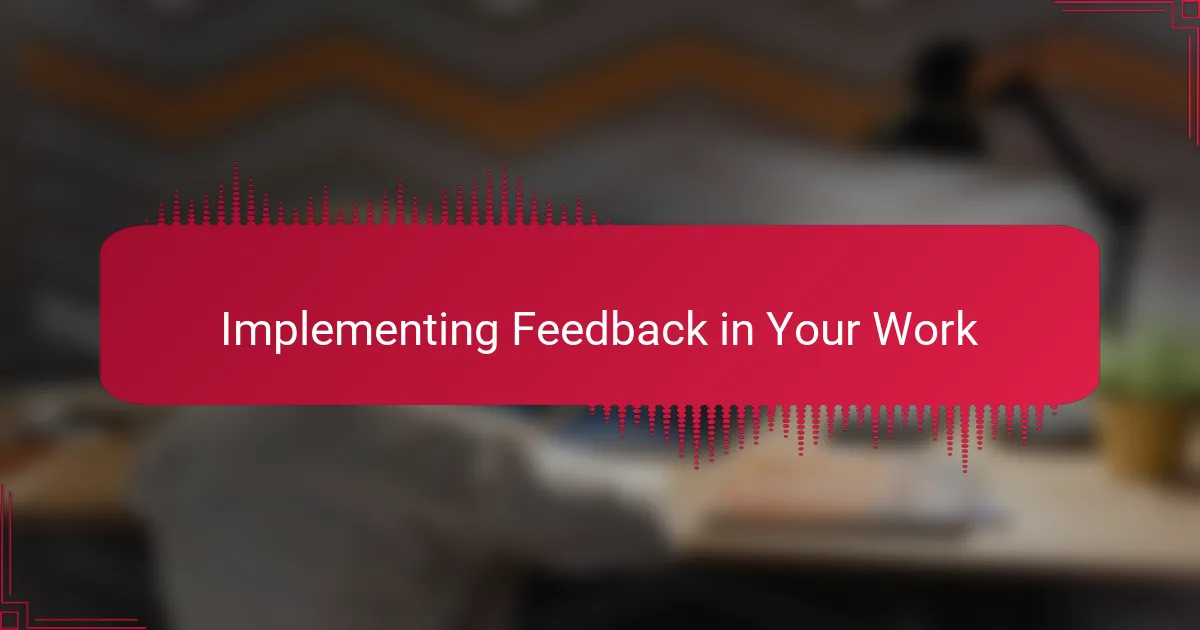
Implementing Feedback in Your Work
Implementing feedback in my writing process has been transformative. One of my favorite methods is to take specific critiques and focus on one or two at a time. For instance, when a reader suggested I deepen my protagonist’s backstory, I dedicated an entire rewriting session to it. This not only enriched my character but also made the entire narrative more engaging.
I’ve also learned the value of trial and error. Instead of being overwhelmed by the feedback, I experiment with it in my drafts. When I once received feedback about pacing, I rewrote a scene with a slower tempo. Surprisingly, this adjustment allowed for more character development and drew my readers in. It’s like finding a piece of a jigsaw puzzle that completes the picture.
Sometimes, I find it helpful to revisit feedback after some time has passed. Initially, my emotions might cloud my judgment, but later on, I can approach those critiques with fresh eyes. Reflecting on comments months down the line often reveals insights I missed before. Have you ever experienced something similar? I think it’s essential to embrace that evolving relationship with feedback; it truly helps refine our craft.
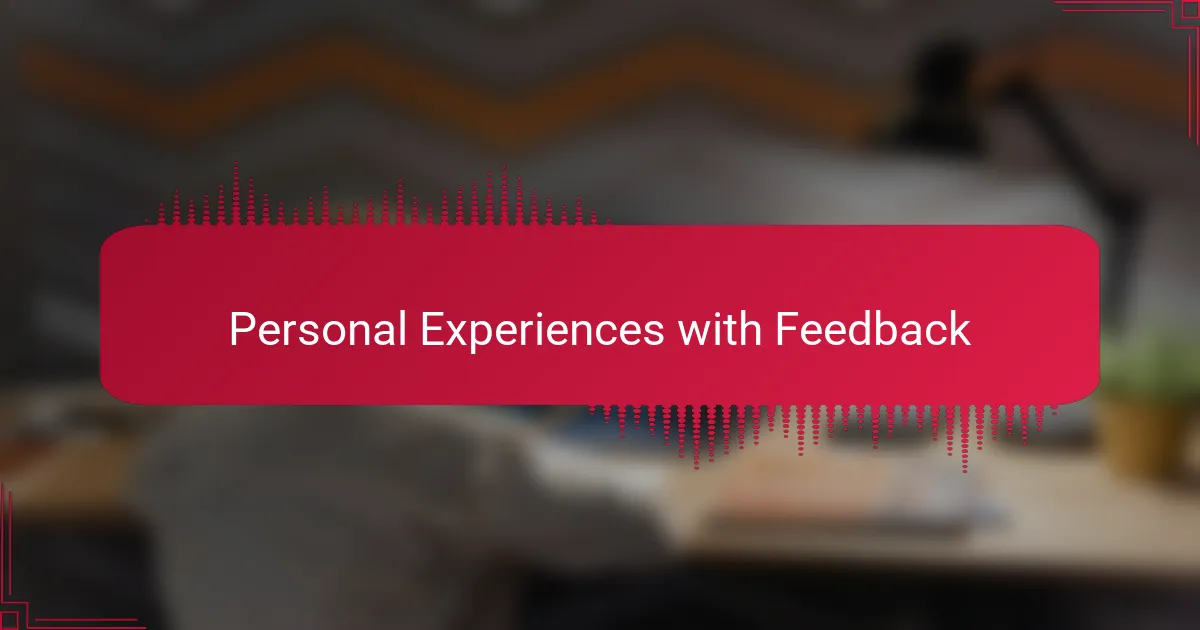
Personal Experiences with Feedback
Receiving feedback has been a game changer in my journey as a comic book author. Early on, I was hesitant to hear criticism, fearing it would undermine my creative vision. However, when I started seeking input, especially from fellow creators and readers, I discovered that their perspectives often brought clarity to my work—showing me blind spots I hadn’t noticed.
One memorable experience was after sharing a rough draft of my first comic. A friend pointed out pacing issues that I had overlooked. At first, it stung; however, I realized that their insights were a pathway to improvement. By revisiting my panels with fresh eyes, I transformed those awkward moments into engaging scenes that truly resonated with my audience.
- Importance of having a trusted circle for constructive feedback.
- How reader perspectives can unveil overlooked aspects of storytelling.
- Balancing personal vision with valuable external insights.
- Embracing vulnerability to grow as an artist through critiques.
